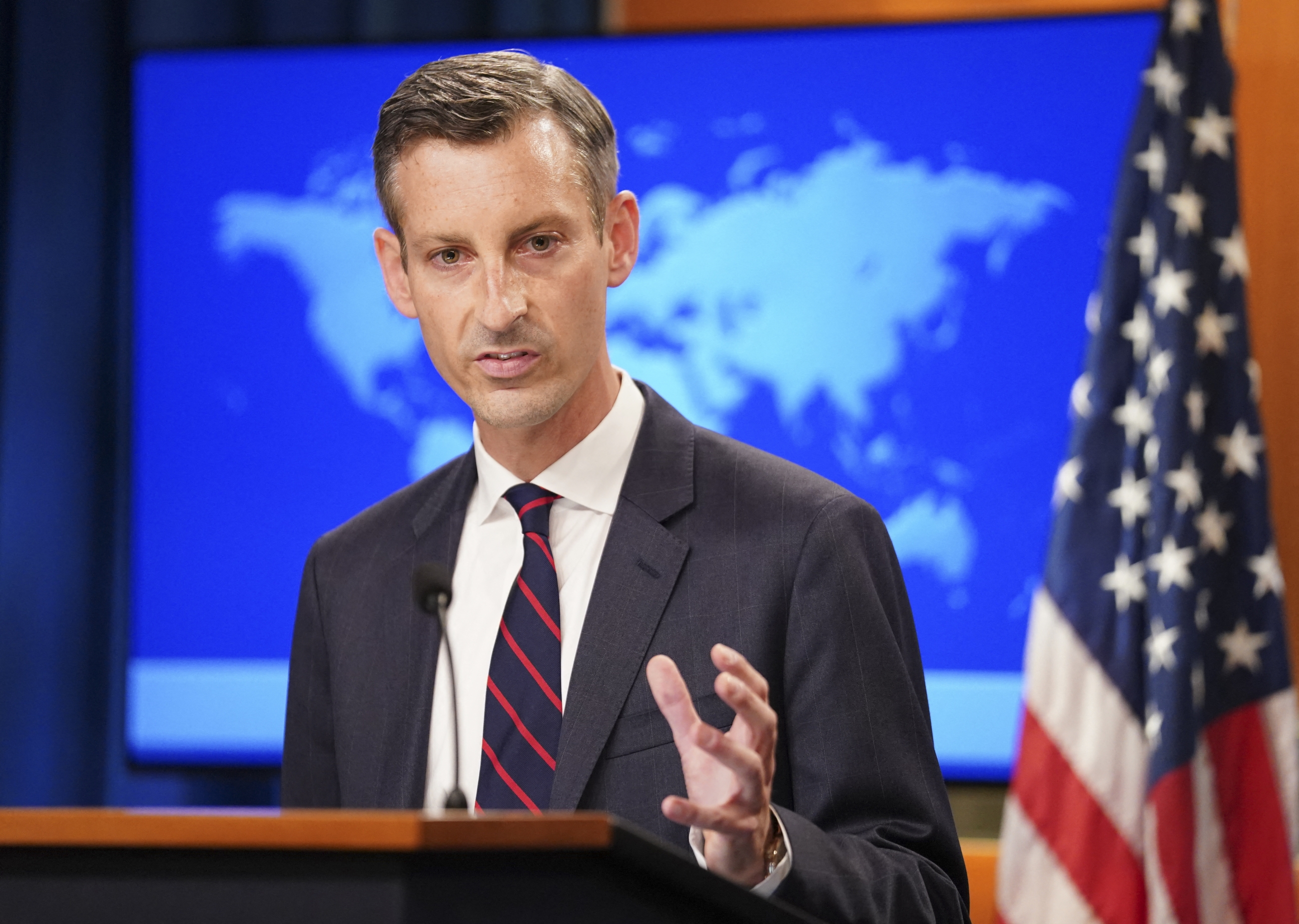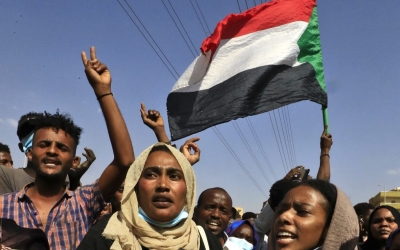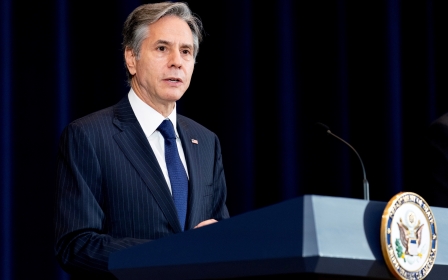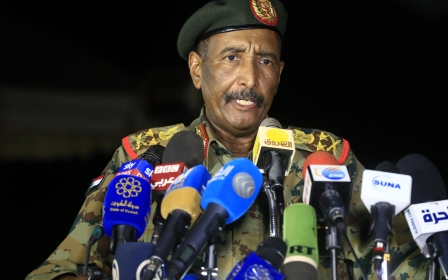Sudan coup 2021: US may reevaluate Israel-Sudan normalisation

The United States has said it will have to reassess the normalisation of ties between Sudan and Israel after Monday's military coup, where soldiers arrested the prime minister and several members of the country's transitional government.
"The many partners now we've spoken with have expressed a similar degree of alarm, concern and condemnation of what we've seen take place in Khartoum in recent hours," State Department spokesperson Ned Price said during a news conference on Monday.
New MEE newsletter: Jerusalem Dispatch
Sign up to get the latest insights and analysis on Israel-Palestine, alongside Turkey Unpacked and other MEE newsletters
"Similar to the approach to the [Grand Ethiopian Renaissance Dam], I think the normalisation effort between Israel and Sudan is something that will have to be evaluated as we and as Israel watches very closely."
The spokesperson's comments came shortly after he announced that Washington would be suspending $700m in emergency assistance to Sudan, which was "intended to support the country's democratic transition".
Earlier this year, Sudan agreed to a US-brokered deal to normalise ties with Israel, following a similar move made by the United Arab Emirates, Bahrain and Morocco in 2020. The agreement still needs to be approved by Sudan's parliament.
Washington had promised financial and diplomatic incentives to Sudan in exchange for establishing diplomatic relations with Israel, including formally removing Khartoum from the US State sponsors of terror (SST) list after 27 years.
'Slow down' normalisation talks
Price's comments have signalled that the US may put a pause on the normalisation process between the two countries. Cameron Hudson, a fellow at the Atlantic Council and former US diplomat, told Middle East Eye that with the military currently in power, the Biden administration would look to refrain from offering it any legitimacy.
"The US could be signalling an effort to slow down the normalisation talks between Israel and Sudan because any deal now could be interpreted as legitimising the military's hold on power, something Washington has no interest in doing," Hudson said.
Doing so would likely harm the success of the coup, as establishing ties with Israel has been seen by analysts as a move made by Sudan's military, while civilian leaders including Prime Minister Abdalla Hamdok have appeared to downplay the decision.
"The Sudanese military has always been approaching Israel or isolating the civilians from being approached by Israeli officials," Dr Jihad Mashamoun, a researcher and political analyst, told MEE.
"The military believes that if they have the backing of Israel, Israel will lobby on behalf of the military in the US in favour of the Sudanese military's control over the transition period in Sudan."
Mashamoun noted that Israel, which has yet to give an official response to the coup, likely favours a military-led government in Sudan.
"Israel would want a military partner in Sudan rather than a civilian one because anything that a civilian government does has to go through parliament. The problem for Israel is that if this normalisation agreement goes through parliament, it won't pass."
'Suspend further financial assistance'
The coup took place in the early hours of Monday, when Sudanese armed forces arrested five ministers from the transitional cabinet, including Hamdok.
General Abdel Fattah al-Burhan - the head of the army and chairman of the Transitional Sovereign Council (TSC) - declared a state of emergency and announced the dissolution of the TSC and the government.
The actions were met with a harsh response in Washington, both within the Biden administration and Congress. The US severely condemned the military's actions in the African country and has said that it is reviewing a full range of economic options to address Monday's coup.
Meanwhile, a number of lawmakers put out a statement calling for the "immediate suspension of further international financial assistance and other appropriate measures".
The US has, however, said it is too early to decide whether it will enact sanctions on the country, which is suffering from a dire economic situation amid the political turmoil.
Already impacted by decades of isolation and sanctions, inflation approached 400 percent in June, and the nation has been witnessing shortages of basic goods and services and a spike in food insecurity.
Price noted that the US will continue to maintain its humanitarian assistance to the country. So far in 2021, Washington has provided nearly $377m in such aid to the country.
Middle East Eye delivers independent and unrivalled coverage and analysis of the Middle East, North Africa and beyond. To learn more about republishing this content and the associated fees, please fill out this form. More about MEE can be found here.






